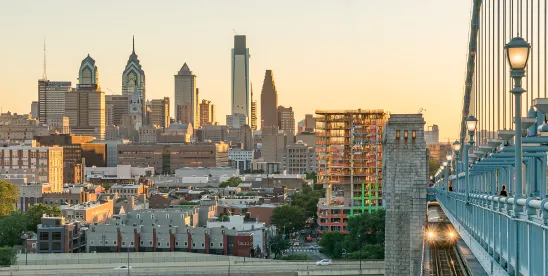Mayor Cherelle Parker’s mandate requiring City of Philadelphia remote workers to return to their offices took effect on July 15, 2024, following the Philadelphia Court of Common Pleas judge’s denial of a local union’s request for preliminary and permanent injunction.
In her capacity as chief executive of the government of Philadelphia, Mayor Parker has the power to issue executive orders and mandates—including executive policies—to agencies within the executive branch of the city’s government. She is also allowed to amend, revise, or repeal previous executive orders, which is exactly what she has done here. Her mandate requiring the return of in-person work sunsets the City of Philadelphia’s June 11, 2021, virtual work policy.
Quick Hits
- Philadelphia’s mayor mandated that remote city workers report to in-person duty starting on July 15, 2024, but a union representing municipal workers filed an action to enjoin the mandate, arguing that the City of Philadelphia was required to negotiate return-to-work terms.
- The union also filed an unfair labor practice charge with the Pennsylvania Labor Relations Board, alleging that the mayor’s administration violated the terms of the union’s collective bargaining agreement with Philadelphia’s government.
- On Friday, July 12, 2024, the Common Pleas judge ruled the City could enforce the mandate, and workers had to return to work on Monday, July 15.
Mayor Parker’s mandate has received considerable pushback, including from local unions. Under Pennsylvania law, an employee is presumed to be “at will,” meaning that he or she may be dismissed for any reason, or no reason at all, as long as the dismissal does not violate the law (i.e., is not discriminatory). However, employees may enter into employment agreements with their employers that govern the terms and conditions of their employment and prescribe the actions that both employers and employees may or may not take. Employees may unionize, and the union may enter into a collective bargaining agreement (CBA) with an employer that provides the terms and conditions by which the union members’ employment will be governed. Generally, if any dispute regarding the interpretation or application of the provisions of a CBA arises, the CBA provides a dispute resolution procedure.
Here, the American Federation of State, County and Municipal Employees (AFSCME), District Council 47, representing about 6,000 administrative and supervisory employees, took exception to Mayor Parker’s mandate. District Council 47 contended that the mandate violated its CBA with the City of Philadelphia because the CBA gave the union the right to negotiate with the city government over the return to work. Because District Council 47 believed the City of Philadelphia violated the terms of the CBA, it took two separate forms of recourse available to it. First, District Council 47 filed an unfair labor practice complaint with the Pennsylvania Labor Relations Board, alleging that the City had violated the terms of the CBA. Second, as a recourse to prevent its union members from being dismissed for not reporting to work in person on July 15, District Council 47 filed a lawsuit on July 1, 2024, in the Philadelphia Court of Common Pleas seeking a preliminary and permanent injunction against the City of Philadelphia that would prevent the administration from implementing Mayor Parker’s mandate requiring city employees to return to work on July 15. That hearing on the union’s motion for an injunction was held over the course of two days on July 11 and July 12 in the Court of Common Pleas.
In the lawsuit, District Council 47 claimed that the CBA required the City of Philadelphia to collectively bargain with the union regarding changes to union members’ work schedules. Because Mayor Parker unilaterally issued the mandate without bargaining, District Council 47 claimed that the City had violated the terms of the CBA. Therefore, the union requested that the City of Philadelphia be prohibited from implementing what the union called unbargained-for changes to work schedules in violation of the CBA, while the union’s grievances, filed in accordance with the CBA, were adjudicated. To succeed on its request for preliminary and permanent injunction, the union needed to show: (1) a likelihood of success on the merits of the dispute; (2) immediate and irreparable harm if the mandate was implemented; (3) greater injury would result from refusing the injunction than from granting it and that the injunction would not substantially harm other interested parties; and (4) public and private interest factors favored issuing the injunction.
After two days of hearings, the Common Pleas Court judge denied District Council 47’s request for preliminary and permanent injunction, ruling that the City could enforce Mayor Parker’s mandate requiring City of Philadelphia employees to return to work on Monday, July 15, 2024. Therefore, as of July 15, if City of Philadelphia employees did not return to work, they risk facing discipline for unexcused absences.




 />i
/>i

